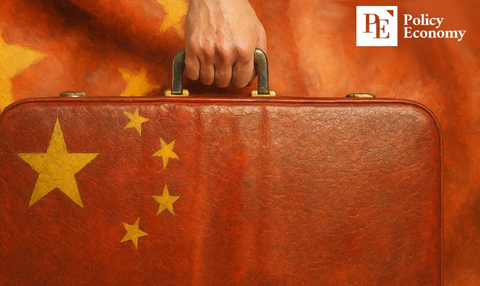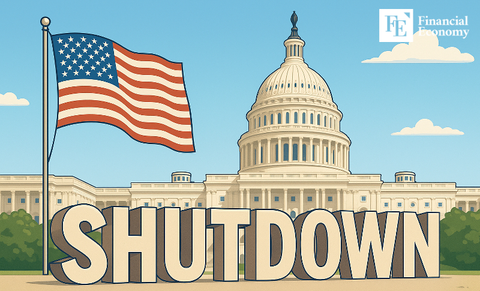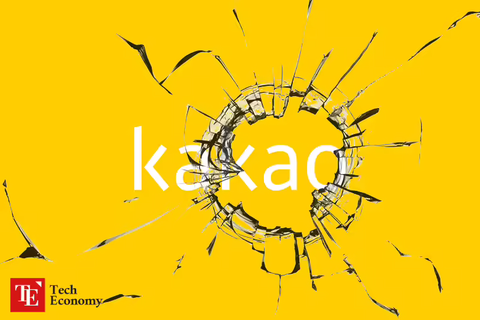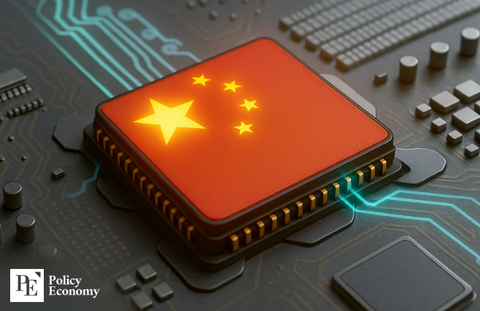Trump’s 100-Fold Visa Barrier Turns into Windfall for UK, Germany, and China in Global Talent Race
Input
Modified
U.S. Immigration H-1B Work Visa, the “$100,000 Wall” American Firms Accelerate Offshoring, High-Tech Jobs Pushed Abroad Nations Intensify Talent Hunt, Visa Clampdown Backfires

Dire forecasts are proliferating over President Donald Trump’s sweeping hike in H-1B visa fees. Projections suggest U.S. work permits could decline by more than 5,000 each month, severing a vital growth platform for startups. Concerns are mounting that the policy could accelerate offshoring, driving advanced jobs overseas. As American firms reel from diminished access to the global talent pool, countries such as the UK and China are moving aggressively to seize the opportunity and lure skilled workers.
Work Permits to Fall by as Many as 5,500 a Month, Capital Strength Divides Firms
According to Bloomberg on the 29th (local time), JPMorgan warned in a recent report that the White House’s imposition of a $100,000 H-1B visa fee could slash immigrant work permits by up to 5,500 per month. “While the overall impact on the U.S. labor market may be limited, the shock will be profound for IT companies and Indian immigrants,” the report noted.
In fiscal year 2024, roughly two-thirds of approved H-1B applicants were in computing roles, with half concentrated in professional, scientific, and technical services. Indian nationals accounted for 71% of all approvals. Bloomberg reported that of the 141,000 new H-1B petitions filed last year, around 65,000 were processed abroad — a category JPMorgan expects to be directly hit by the fee. Analysts added that U.S. firms reliant on foreign skilled labor could lose as many as 140,000 jobs annually, over 10,000 a month.
The exorbitant visa fee is expected to cleave the IT sector into firms with strong financial reserves and those without. The Wall Street Journal observed that the $100,000 charge would function as a “selective barrier” in Silicon Valley. Some Big Tech leaders expressed guarded optimism. Nvidia CEO Jensen Huang and OpenAI’s Sam Altman struck a positive tone in a joint CNBC interview, while Netflix chairman Reed Hastings posted on X calling the measure a “great solution,” arguing it would deter lower-value visa applications. Parker Conrad, CEO of software firm Rippling, said he would willingly pay the fee if it guaranteed access to visas.
Startup founders, however, voiced stark opposition. Critics argue the Trump administration is erecting a wall that only well-capitalized corporations can scale. Greg Morrisett, dean of Cornell Tech, warned, “Large firms can absorb the added cost, but for startups it is devastating. This fee hike will stifle new ventures.” He underscored the program’s importance by noting that “Microsoft, Google, and Meta all grew through H-1Bs.”

UK and Germany Step Up Foreign Talent Recruitment
Concerns are rising that the visa fee regime will accelerate offshoring, with key nations poised to capitalize. Europe is at the forefront. The Financial Times reported that UK Prime Minister Keir Starmer is weighing a plan to scrap visa fees for top global talent.
Barney Hussey-Yeo, founder of British fintech unicorn Cleo, openly courted U.S. talent on LinkedIn, offering to assist those forced out by H-1B restrictions. Cleo reportedly posted around 100 such job ads through its London office, explicitly targeting professionals affected by the U.S. policy. “We know being forced out of the U.S. was not your plan,” one posting read, “but sometimes the best opportunities come from unexpected change.”
The Startup Coalition, a British policy group, urged the government to “seize the opportunity” created by Trump’s clampdown and implement policies to redirect talent flows toward the UK.
Germany is also framing the U.S. visa shock as a “golden opportunity.” Bernhard Rohleder, head of the German digital industry association Bitkom, said the American policy “could help Germany and Europe attract top-tier talent.” Philipp Ackermann, Germany’s ambassador to India, promoted his country’s immigration policy as “reliable, modern, and predictable,” stressing job security for Indian workers. He noted that Indians working in Germany on average earn higher incomes than German nationals, bolstering their contribution to society and welfare systems.
Canada Seeks Redemption, China Escalates Talent Offensive
Canada — once derided as “America’s 51st state” — is now mobilizing to capture talent fleeing the U.S. Ottawa has integrated the H-1B turmoil into its immigration strategy, aiming to absorb global tech workers. Cities such as Vancouver, Toronto, and Montreal have already emerged as R&D hubs for major U.S. tech firms. Vancouver, in particular, has served as a fallback labor pool for Seattle-based giants like Amazon and Microsoft. Analysts predict America’s harsher immigration stance could transform into Canada’s brain gain.
China, meanwhile, is rolling out an even more aggressive policy. According to the State Council, Beijing will launch a new “K Visa” for STEM talent starting next month. Unlike conventional visas, it does not require prior job offers or research appointments, allowing foreign applicants to enter China for study or job hunting — and remain even without employment.
Foreign Ministry spokesperson Guo Zhaokun said the new category was created “to promote youth science and technology talent exchanges between China and abroad,” with details to be released by embassies and consulates. State-run Global Times added that K Visa holders could engage in education, cultural, and scientific exchanges, as well as corporate and business activity.
Although the plan was unveiled in August, the timing of its rollout — coinciding with Washington’s fee surge — has magnified its significance. Analysts argue the Trump administration’s move is a “self-defeating policy that destabilizes critical talent pipelines,” giving China a chance to present the K Visa as an alternative. Reuters called the move “perfectly timed,” noting that as H-1B applicants search for substitutes, China’s new visa could tilt the global talent race in Beijing’s favor.






















Comment